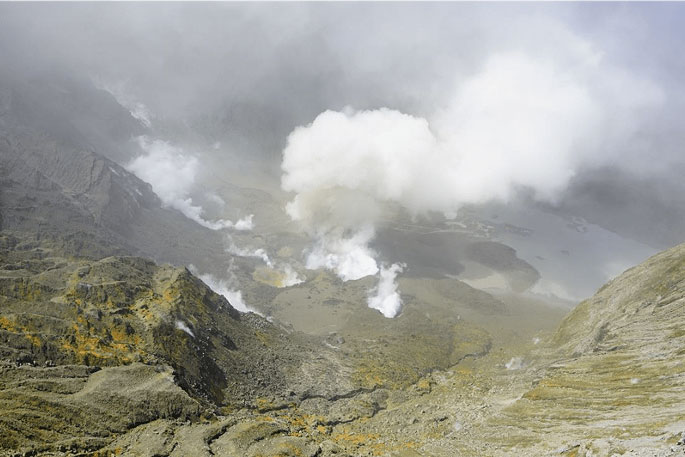The 2019 Whakaari/White Island eruption which killed 22 people was impossible to predict, a leading volcanologist has told the court.
It is the second week of a trial, being held at Auckland District Court, over alleged health and safety failings on the island in the lead-up to the eruption.
GNS Science principal scientist Dr Gillian Jolly, who is also the Chief Science Advisor for the Ministry of Business, Innovation and Employment, is an expert witness in WorkSafe's ongoing case against the island's owners, their company, and two tourism companies.
GNS Science pleaded guilty to charges from WorkSafe in May. Dr Jolly told the courtroom Whakaari/White Island was showing signs of higher activity in the days before the disaster, but "volcanoes are inherently unpredictable".
"We can never definitively say when an eruption might happen," she said.
"We never talk about volcanic activity being predictable. Prediction implies you know what is going to happen and when. We prefer to talk about forecasting and probability."
GNS Science had been monitoring Whakaari closely, Dr Jolly said.
"Whakaari, being a frequently active volcano, we used the full suite of monitoring [equipment]," she told prosecutor Kristy McDonald KC.
"On the island, we had two seismometers permanently providing real-time data, we had two global position system instruments, we had two differential optical absorption spectrometers looking at the gas coming out [of the volcano], and we had three cameras pointing at the active vent."
 View on November 16, 2020, of steam, gas and ash emission from the 2019 primary vent area of the Whakaari / White Island crater. Photo: GNS Science.
View on November 16, 2020, of steam, gas and ash emission from the 2019 primary vent area of the Whakaari / White Island crater. Photo: GNS Science.She said Whakaari was showing heightened activity in the lead up to the eruption.
"For the period towards the end of 2019, we saw a number of parameters that were showing elevated signs.
"The more unrest indicators, the more likely an eruption."
But GNS could not use that data to determine when, or if, an eruption would occur.
"Monitoring and forecasting volcanoes is like forecasting weather," Dr Jolly said. "Except you've got your eyes closed."
She said it would have been impossible for GNS Science to provide an accurate warning.
"Not with [our] current available technology and understanding of volcanic activity."
Even if it could, it had "no power" to stop tours from going ahead, she said.
"We're not a regulator."
She said someone caught in a pyroclastic density current (fast moving clouds of hot ash), like the one tourists faced on Whakaari, had a 95 percent probability of death.
Other expert witnesses were given permission to watch Dr Jolly give evidence. The trial has been set down for four months.



0 comments
Leave a Comment
You must be logged in to make a comment.